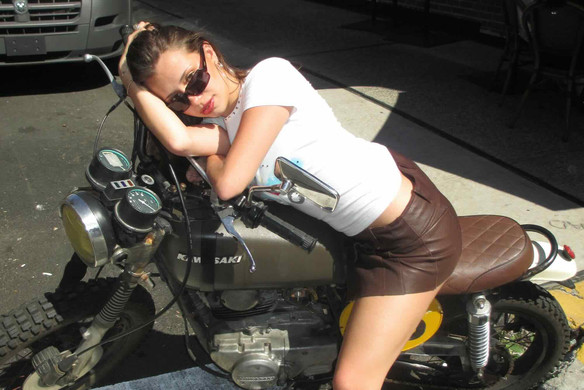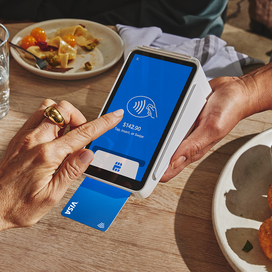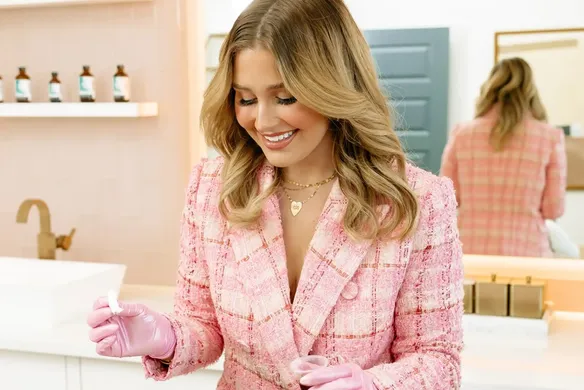Table of contents
Vintage retailer Funny Pretty Nice started out of necessity when Founder and CEO Natalia Spotts was called home by her parents to clear out her vintage clothes she had left in their garage. In high school and college she worked in thrift stores, amassing a bit of a collection — the same collection that now needed to be cleaned out in order for her parents to move. “I took all the furniture out of my apartment in New York, I bought a couple of rolling racks and set up this makeshift store in my apartment,” said Spotts, adding that she even moved her bed to another room. “I invited every single person I’ve ever met to come shop this vintage collection of clothing.” That one pop-up covered a month of rent and sparked her interest in trying this again. Soon she would find stores to let her pop up around the city until the COVID pandemic drove her to explore online options.
Her friends grew tired of coming over to her apartment. When COVID hit, the timing was just right to build a site. She began taking pictures on her iPhone, took friends up on their offers to model for her, and even brought her sister in to help her run what was about to transition from a side hustle to a business.
Opening a store front
“I kept chugging along online and saw that rent prices were dropping. Every place in my neighborhood was just empty,” said Spotts. “I walked past this store right next to my house and saw a phone number. It looked like the perfect little size, and I decided to call the number and beg the landlord to do month-to-month.” To her surprise, the landlord agreed. Typically a business would require a two- to five-year lease. But with many New Yorkers leaving the city during the COVID pandemic, she was able to test a physical location while taking less risk.
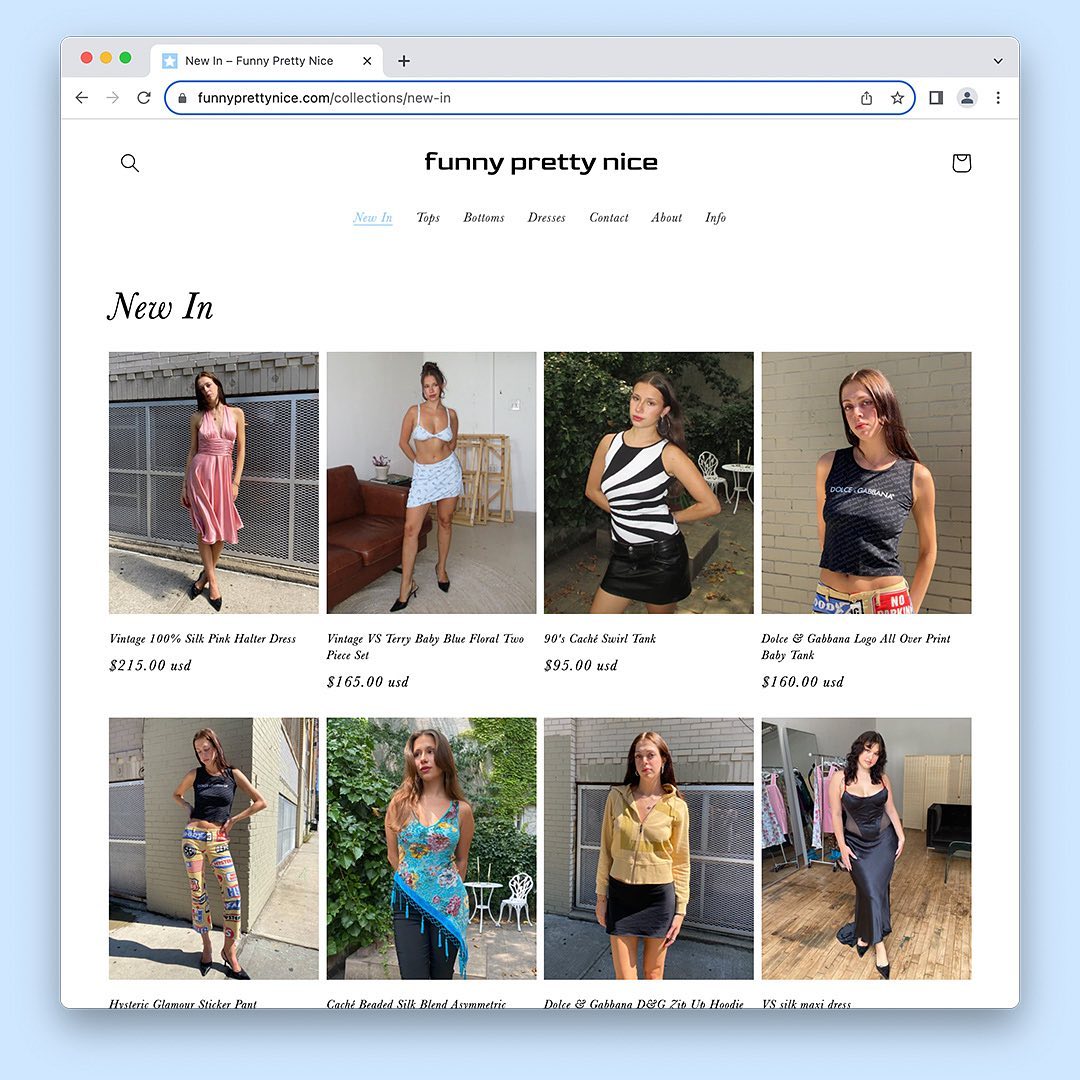
Having opened this store at 23 years old, Spotts says the financial responsibility kept her up at night and still does today. At the beginning, she’d worry about the rent of her apartment versus the rent of the space.
Callout: “It has to work no matter what, essentially or I’m going to lose all my money. It absolutely has to work.”
Today, she worries about this rent in relation to paying employees, paying the store, and more as the business grows. With success, those concerns have changed but not gone away.
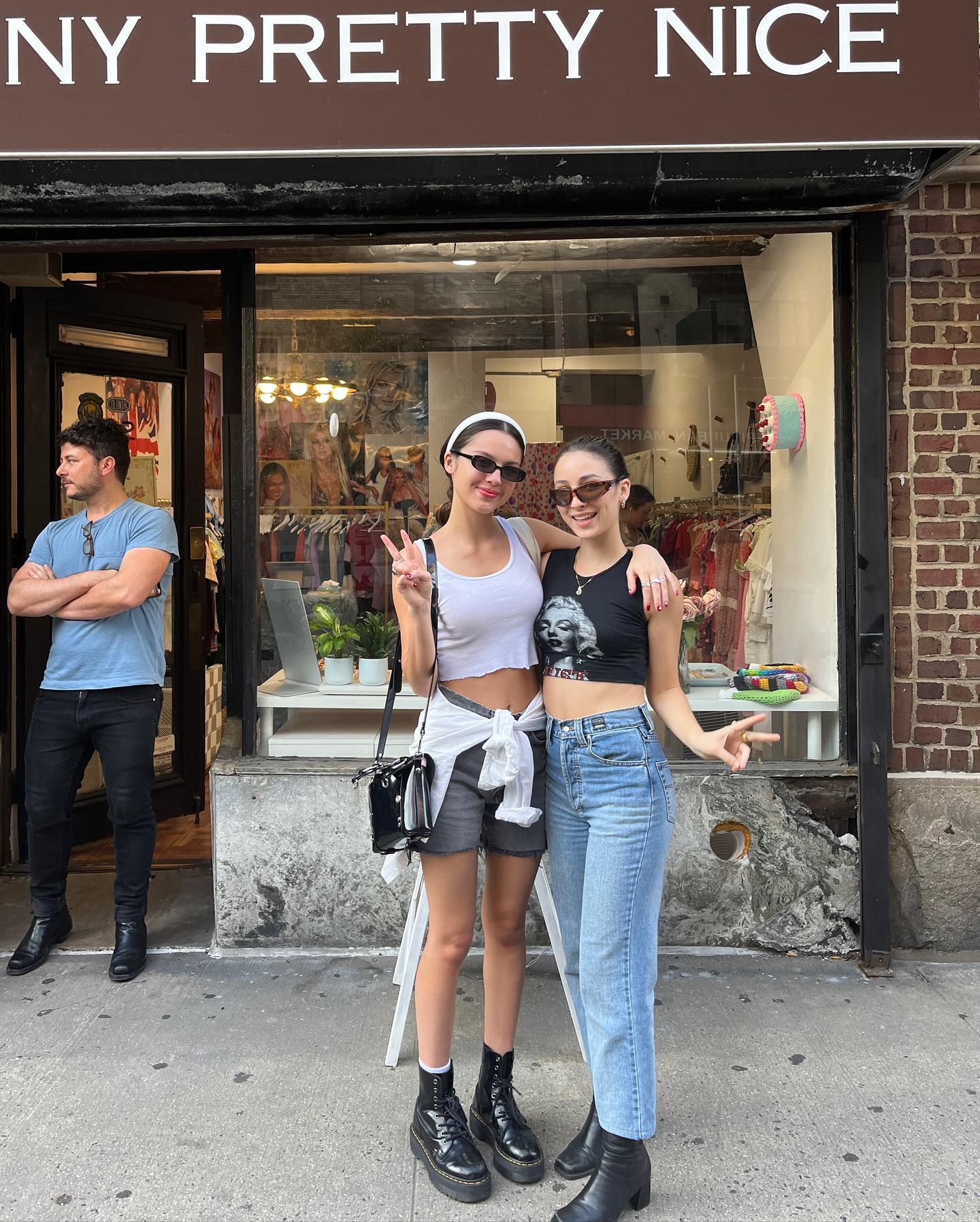
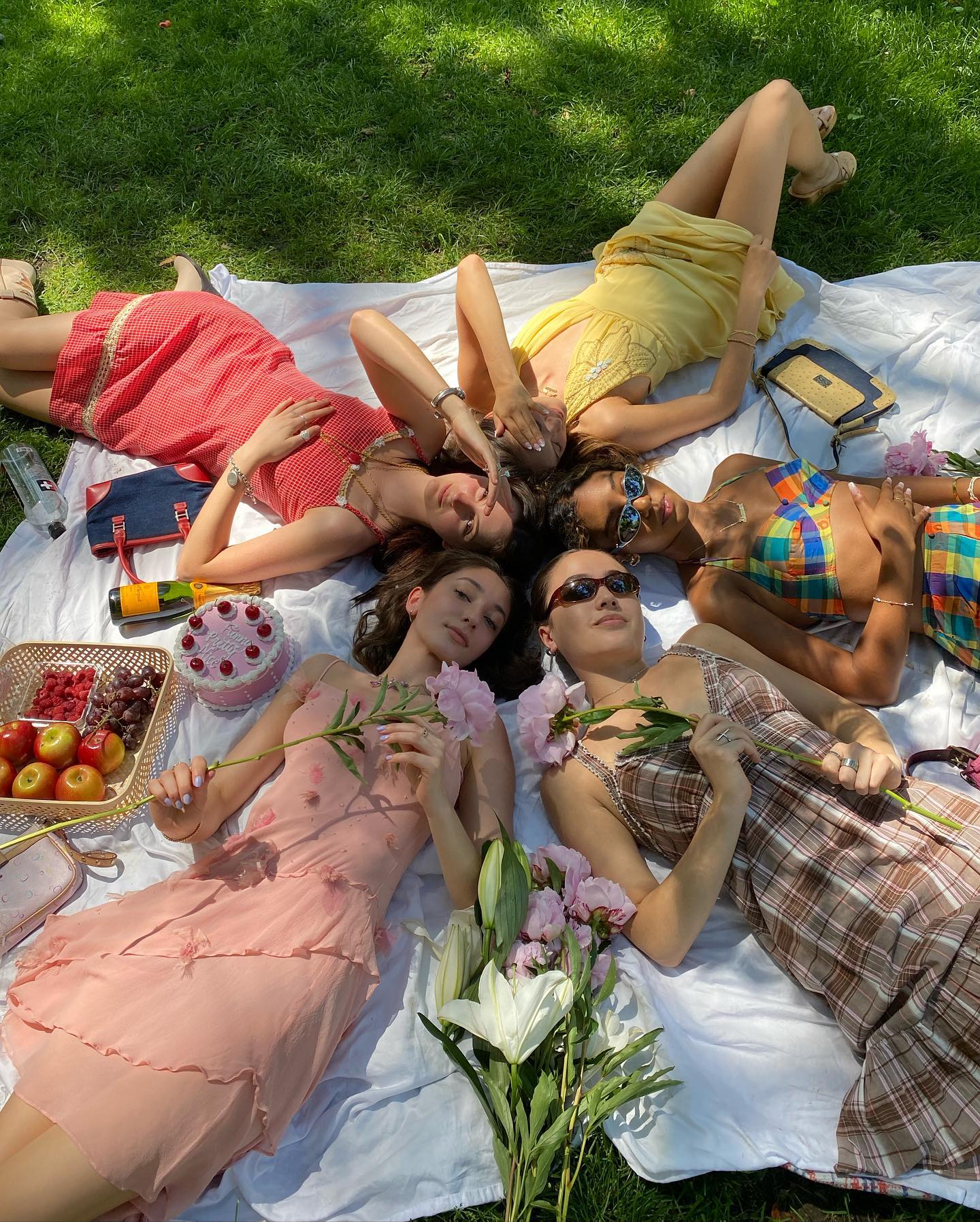
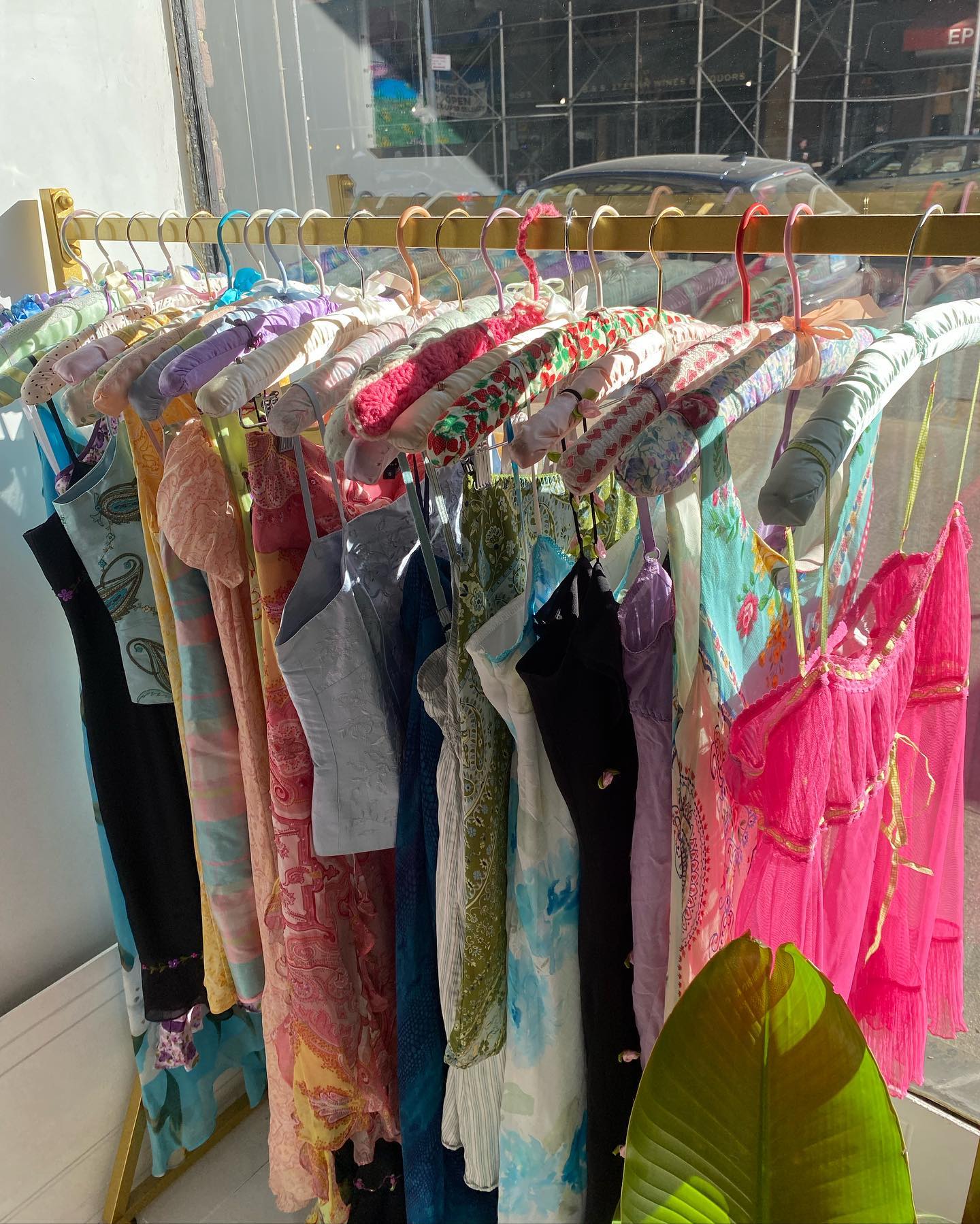
Setting the trend
One of the most complex elements of operating a vintage retail business is inventory. Spotts says that since every piece of clothing is unique, sourcing can be time-consuming, but sales can happen in a minute. Because of this, keeping things in stock has been a challenge. This also makes online shopping an expensive investment. Each article of clothing is unique, which means sourcing a model for each item, measuring it, and putting it on the site.
“Other stores have thousands of skews per what they’re photographing, what they’re measuring, and putting up on the site. They can sell thousands of items versus selling only one,” said Spotts.
Part of what makes Funny Pretty Nice stock and sell what’s most relevant for its customer base is that they can set the trend. When Spotts is sourcing, she can spot something she likes and turn it around quickly. The trends often stay going for a few months, and she adds that one of the benefits of being a vintage retailer is that many trends originate out of thrift or vintage stores. The clothing is affordable and accessible.
Both Spotts’ personal and business brands are heavily intertwined on social media. If they have a certain type of item in-store, like lingerie-inspired camisoles, she will share these items on her personal social media. Her ability to spot trends and source unique clothing has garnered the shop a loyal following online and in person, including celebrity customers like Olivia Rodrigo and Addison Rae.
The changing face of retail
When the retail shop opened just before the pandemic, many tried to dissuade her from pursuing retail, believing it to be risky as consumers changed shopping habits. After her experience the last few years, not only does she believe retail will grow stronger in the next five years, but the space will see more innovation in experiential shopping and customer personalization.
Building a community has always been a part of the plan for Funny Pretty Nice. Spotts was inspired by makeup brand Glossier, a business that started with a small, tight-knit community of women. She says in the beginning she was a part of the early customer base, joining a few hundred top customers on a Slack channel and small community. When she built her own business, she was inspired by this concept and focused on making a community for customers interested in sustainability, wanting alternatives to buying vintage online, and those who had a similar style.
As for what’s next, Spotts is focused on growing her staff. As she’s scaled the business, not only has she hired more retail associates, but her sister has also joined the team, leading the finance side and giving Spotts more time to be creative.
![]()

